Blog
Treating Anxiety, Stress And Depression – Part 1

In a previous post titled “The Prevalence Of Anxiety In Modern Society,” we discussed how stress and anxiety have become a major issue for large portions of the population. That post contained some startling statistics about how much money is being made by pharmaceutical companies from sales of psychotropic medications, which are being prescribed at an alarming rate.
What are some causes of anxiety, stress and depression?
Having a better understanding of the potential causes of anxiety, stress and depression allows people to make better decisions on how to handle these emotional challenges.
Before we provide a list of possible triggers, we want to stress the importance of “being present.” Living in the present moment is one of the most important tools a person can use to combat stress and anxiety. It is a state of being that will put a person’s problems into perspective. By being present, many—if not all—of the issues and conflicts will begin to fade away, as the majority of problems are either about the past or the future. In a previous blog post titled “The Power Of Being Present,” we took the time to write about being present and provided tools to help people work towards staying in the present moment. If you are constantly thinking about the past or worried about the future, we strongly suggest you take the time to read that article.
While there can be many causes of stress in a person’s life, there are some common issues that many of us face: major life changes, relationship difficulties, work or school challenges, being too busy, financial problems, children and family, rigid thinking, chronic worry, lack of flexibility, unrealistic expectations/perfectionism, an all-or-nothing attitude, pessimism and negative self-talk. [Link]
At some point in life we all have encountered a few of these situations and behaviors. One key to facing these challenges is changing your perspective and words. The way you see things and the way you describe them is the way they will become. If you believe that a major life change is going to be hard—and you keep telling yourself that—then it will be. If you are always talking about being too busy, then you will always be too busy; your words will create the situation that you are talking about. Since it’s true that words create your reality, being mindful of that fact is extremely important. We wrote about this subject in an earlier post titled “Watch Your Words.” If you find that the words you are using are often negative and restrictive, we suggest you take the time to read that earlier post.
What are the differences between anxiety, stress and depression?
It is important to understand the differences between anxiety, stress and depression, as it will allow you to identify what emotional challenge(s) you are dealing with. Having a proper definition and specific information will also provide you with direction when looking for treatment and resolution.
Stress is an everyday part of life and is a normal reaction to a situation where a person feels under pressure. It’s part of the body’s primal “fight or flight” response that is handled by the sympathetic nervous system and is intended to keep us safe and alive. During human development, stress responses were primarily geared to survival. In modern times, that trigger has changed. Most people living in the 21st century are not in mortal danger; stress is now caused primarily by living in a fast- paced society full of schedules and deadlines.
Anxiety and stress share a similar emotional response. However, the specific difference with anxiety is that the feelings of stress are still being experienced long after the actual event or trigger. These feelings remain, causing continued emotional strife regardless of the fact that the original cause of the stress is no longer present. The residual feelings linger, leading to a state of fear, unease and anxiousness that can create further issues. [Link]
The National Alliance of Mental Illness defines depression as a mood state that goes well beyond a temporary feeling of being sad or blue. It is a serious medical illness that affects a person’s thoughts, feelings, mood, behavior and physical health. Depression can potentially be a life-long condition in which periods of wellness alternate with recurrences of illness. [Link]
In part 2 of this series we will talk about natural and holistic ways of treating anxiety, stress and depression. If you, or anyone you know, is suffering from any of these emotional challenges, we implore you to get treatment as soon as possible.









